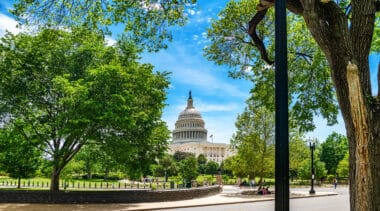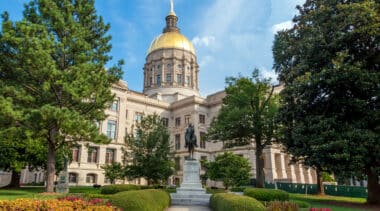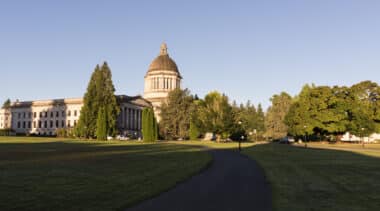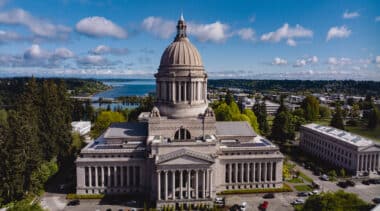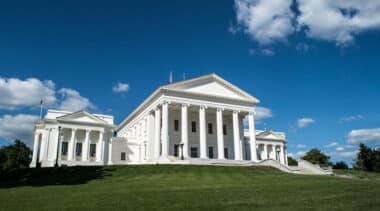-
Federal court strikes down Oregon law requiring marijuana licensees to sign labor peace agreements
The judge concluded that the law would usurp powers reserved to a federal agency and that it would violate the free speech rights of marijuana business owners.
-
A symptom, not the cause: Institutional investors and the housing crisis
The presence of institutional investors in the housing market has grown substantially in the past 15 years.
-
The main causes of air traffic control problems at Newark Airport
A closed runway, staffing shortages, outdated technology and lack of oversight are crippling air traffic control and putting travelers at risk.
-
Housing costs, regulation, and the promise of reform
The challenge is to reshape regulations to allow much more housing where it’s needed.
-
Congress attempts to standardize AI rules, but legal challenges remain
If well designed, a uniform federal framework could offer clarity and help artificial intelligence technologies flourish.
-
New Georgia, Florida, and Missouri laws protect parents who teach their children independence
These laws ensure that parents can confidently grant reasonable levels of independence to their kids without fearing government intervention.
-
Top 3 cybersecurity policy priorities for the Trump administration
The Trump administration should prioritize establishing clear, unified cybersecurity standards, allowing for tailored approaches within specific sectors.
-
Georgia builds on reforms to provide released inmates with identification documents
Senate Bill 147 represents a meaningful step toward reducing recidivism and promoting public safety in Georgia.
-
Washington lawmakers passed a ticking time bomb for pension solvency and the state budget
Engrossed Substitute Senate Bill 5357 jeopardizes pension solvency to divert funds toward other budget items.
-
Arkansas’ K-12 open enrollment slam dunk
Thanks to new open enrollment laws, Arkansas students can now attend any public school regardless of where they live.
-
Washington state rent control bill will shrink housing supply and worsen affordability
Washington state's experiment with rent control is a fundamentally flawed solution to housing affordability.
-
The federal ban on New York’s cordon pricing experiment is bad policy
Innovation in urban policy is a necessary step toward more efficient cities and freer-flowing traffic.
-
The App Store Accountability Act attempts to regulate unproven technology
The bill would require major application platforms to verify that underage users have affirmative parental consent for each app download and purchase.
-
Texas open enrollment bill would significantly increase school choice
Senate Bill 686 could help millions of students in Texas find the right public schools for them, regardless of their home zip code.
-
California bills would increase taxpayers’ costs and public pension debt
California’s state-run pension plans already had $285 billion in unfunded liabilities at the end of 2023.
-
San Diego doesn’t have to accept spiraling public pension costs
By creating a new pension tier that shares pension risks with employees, San Diego can prevent escalating liabilities and ensure a more balanced distribution of costs.
-
Sharing defined benefit pension costs: A survey of public sector practices
Policymakers should design pension plans that balance financial sustainability with retirement security.
-
Virginia adopts reforms to provide released prisoners with identification documents
By codifying a specific process for providing identification, House Bill 2221 reduces administrative barriers to reentry.




